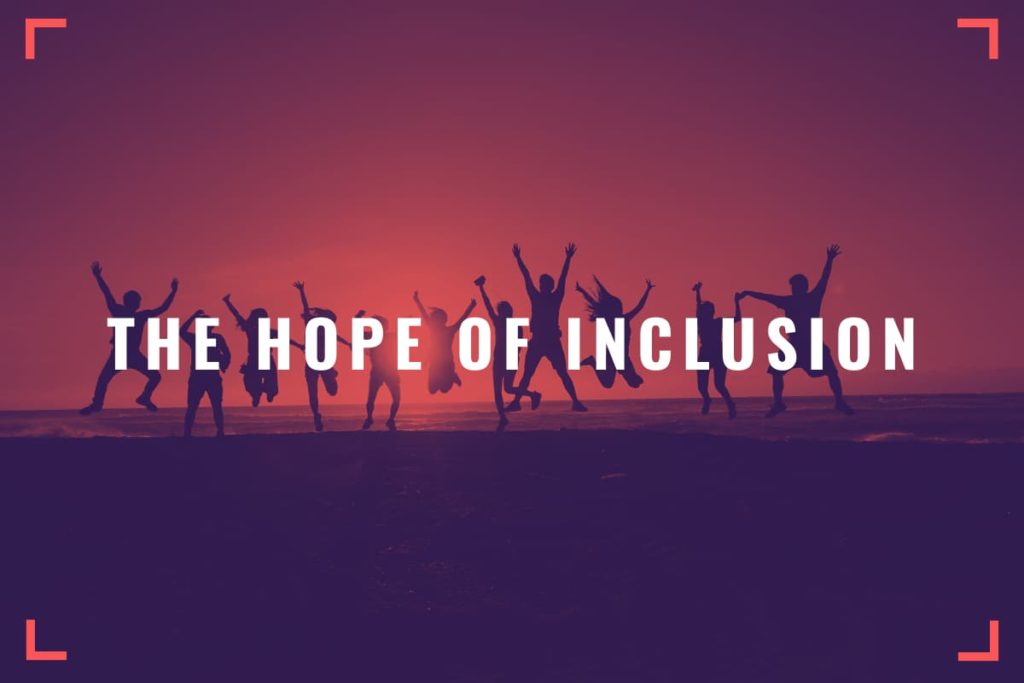E-Soccer is an inclusive sports program where typical children and those with special needs participate and learn alongside each other.
There are many definitions and applications of inclusion, yet with E-Soccer we are striving for the highest quality experience possible. This vision and goal is elusive, but it remains the standard. We believe the social force of inclusion can give hope to every family navigating the disability journey.
Additionally, we believe the opportunity for typical families to interact with and support those with special needs can be transformative.
There are five foundational principles that guided us in beginning E-Soccer.
1. Community
A number of us can remember playing sports as young children while our parents watched from the sidelines. It was a place where both we and our parents built lasting friendships.
This was the experience we wanted for every family with special needs – kids on the field making friends while mom and dad do the same with the other parents.
2. Development
We began with a group of experienced soccer players as well as a few therapists (physical, occupational, and even speech). This team allowed us to determine how best to advance the developmental progress of each child through E-Soccer.
While not every E-Soccer program has this capability, it improves the experience exponentially.
3. Coaching
My own coaching experiences have made me a fan of how much a good coach can do to support parents and their families. When we began, every soccer coach had to have advanced soccer experience as well as the capacity to teach. New coaches watched from the sidelines until they understood the culture and philosophy of inclusion.
After this, they were allowed come on the field to assist the coaches and, in time, become an official coach themselves. This meticulous care in the selection and development of coaches is one of the core principles necessary for E-Soccer success.
4. Mentoring
The mentoring process was one of our unexpected surprises. We originally selected typical children of the same age or older than our kids with special needs to serve as mentors.
In time, we focused on developing typical middle school age kids as the primary mentors. Younger typical children played alongside their special needs peers. The role of the middle school age mentors was to provide an older brother or sister type relationship.
This led to a number of leaps in progress for our kids with special needs who seemed to learn better when the could imitate the mentors. There were so many marvelous moments when I watched my own son learn how to kick by watching his middle school mentor.
5. Influence
One of the most important things to me was making our program personally beneficial to our typical kids. Volunteering to serve and help kids with special needs holds enormous benefit.
One of the most significant was the impressive development of empathy we watched our typical kids experience. Still we wanted more.
We decided to start personally coaching the typical kids in our program to become excellent soccer players. Our goals were to see them play for their high school teams and beyond.
One of the highlights of our program was watching the early morning games between adults and teenagers before the other kids arrived.
If there is a “secret sauce” that makes E-Soccer a magnet for typical kids, it is the benefit to their own athletic progress. The result from our initial group of kids was that we saw a number of them play sports in high school. Most importantly, their influence as athletes allowed them to become life-long protectors, championing their special needs peers from E-Soccer.
Additional Reading
- Building a Dream Team – helping your child create a dream team of inclusive relationships
- Beat Caregiver Burnout – how to avoid burnout when caring for a family with disabilities
- How to Succeed at Inclusion – practical tips on how to make inclusion work for you and your family
- 6 Steps to Visionary Planning – developing and executing a plan to build your child’s future.
- 4 Tips to Facilitate Inclusive Friendships – helping your child build classroom friendships


